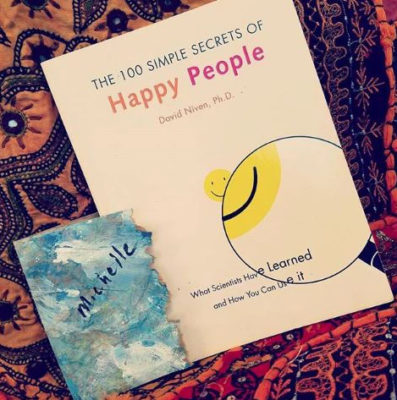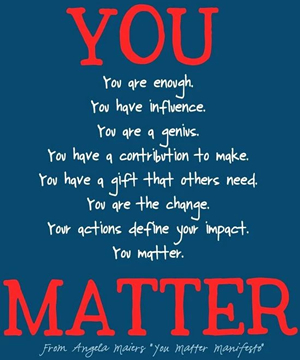10 of 100 Secrets to Bring Happiness in 2019
Around this time of 2019, so many of our New Year’s Resolutions have already been broken. We can find ourselves reflecting on the past, wondering how we have arrived at the end of February already, and thinking of the rest of 2019 to come.

For those in grief, loss, or facing challenges, you may have asked yourself or others, “Will I ever be happy again?” and “When will I ever get through this?” When I worked at OneLegacy in their Donor Family Aftercare Department, our team of grief counselors often heard these two questions from the bereaved families we worked with.
If you can relate, I hope this article will provide you some insight.
You see, the TRUTH is: There is no real, honest, specific answer to those questions. It will be different for each of you, and it will vary based on your relationships, your resources, and how you have cared for yourself during these challenging times. As I was reflecting on my own life during the dawning of the New Year, these last several years have been filled with personal and professional grief and loss. The older we get, the more common that seems to become. Yet, grieving while caring for the bereaved does cause me to be extra vigilant at self-care and taking time to have grief-spurts, process through my feelings and find a way to actively move forward. So, I thought I would share with you some secrets that have worked for me and have worked for the donor families I have served.
The other truth is: Much good research is out there about happiness, life satisfaction, and how to create more of it for yourself. These lessons show clues to help those of us who are grieving.

For instance, try picking up the book, “The 100 Simple Secrets of Happy People: What Scientists Have Learned and How You Can Use It” by David Niven, Ph.D. Periodically, I flip through this book and let my fingers land on a life lesson. I am going to highlight a few of the gems.
1) Secret #36: Laugh.
Just now, my page roulette landed on Laughter. “Happiness was found to be related to humor… The ability to laugh is a source of life satisfaction… Those who enjoy silly humor are one-third more likely to feel happy.” Pg. 70
If you have attended one of my Self-Care workshops, you know I typically teach laughing yoga as part of stress management. Even fake laughter releases endorphins and creates mood improvements that soon leads to real laughter. You can only fake laugh so long before it becomes funny.
2) Secret #34: It’s not what happened, it’s how you think about what happened.
As a cognitive behavioral therapist, my theoretical philosophy is that thoughts affect mood, happiness, grief and even what is perceived as Post Traumatic Stress (trauma) vs. Post Traumatic Growth (resilience). Recently, I was robbed outside an ATM in a really nice neighborhood. Many people told me I would be experiencing trauma and to be on the look out for PTSD. This is an article for another time, but what I knew to be true for me was that this was a learning lesson, I was not hurt (just robbed of money) and that I had profound gratitude and peace around the incident. The situation could have been VERY different. So far, I am doing well (experiencing PTGrowth, not trauma). Two great workbooks to help you conquer your thoughts and mood are a) “Mind Over Mood” by Greenberger and Pedesky or b) “Thoughts and Feelings” by McKay et al.

3) Secret #30: Volunteer.
“Research shows that volunteering contributes to happiness by decreasing boredom and creating an increased sense of purpose in life. Volunteers, on average, are twice as likely to feel happy than non-volunteers.” Pg. 58 Find a cause dear to your loved one or yourself and volunteer even an hour a month.

4) Secret #27: Don’t confuse stuff with success.
“Diener and Fujita 1995 found that the availability of material resources was 9 times LESS important to happiness than the availability of “personal” resources such as friends and family.” You may gain some, other times you lose some. But put some effort this year into connecting to a new group of people centered around a hobby, a book club, a faith practice or a support group. By the way, Secret #11 is “Friendship Beats Money”.
5) Secret 75: Listen to Music.
Hakanen, 1995, found that a positive effect on mood was found for 92% of individuals when they listened to music of their choice.

6) Secret #85: Get a hobby.
Of the thousands of adults surveyed by Mookherjee, 1997, those with hobbies were 6 times more likely to rate their lives favorable than those without a hobby.
7) Secret #50: Cherish animals.
Barofsky and Rowan, 1998, found that “those with a loved pet are 22% more likely to feel satisfied than those without.”
8) Secret #87: Give yourself time to adapt to change.
This is especially important after the death of a loved one. Enough said.
9) Secret #8: Turn off the TV.
Wu, 1998, found that watching too much TV can triple our hunger for more possessions, while reducing our personal contentment by about 5% for every hour a day we watch. WOW!

10) Secret #1: Your life has purpose and meaning.
Last but not least, I want to end with this secret from the book. Lepper, 1996, found that 7 of 10 individuals who reported having a purpose in life felt more satisfied with life; and 7 of 10 who did not have a purpose felt unsettled and dissatisfied. I’m not sure what challenges you are facing, and yes, life’s events can cause massive shifts. You can still find meaning and purpose for your life when you are ready. For one woman I worked with, purpose was found in her grandchildren after her son died. For another man I know, he wrote a book and shared his story with others to bring them comfort. For another young woman I worked with, she found purpose in writing poetry and turning them into songs with a friend.
As you think about how to address your grief, your mood, and changes you are facing and your wishes for 2019, look for ways to increase happiness and life satisfaction. Contact me to help you brainstorm ideas or provide counseling support.
* Special thanks to Betsy, whose husband, Kevin, was a donor in 2015. She gave me Kevin’s beautiful orange tapestry pictured behind the “Happy Book”. This is a good example of Secret #38: Share of yourself.


